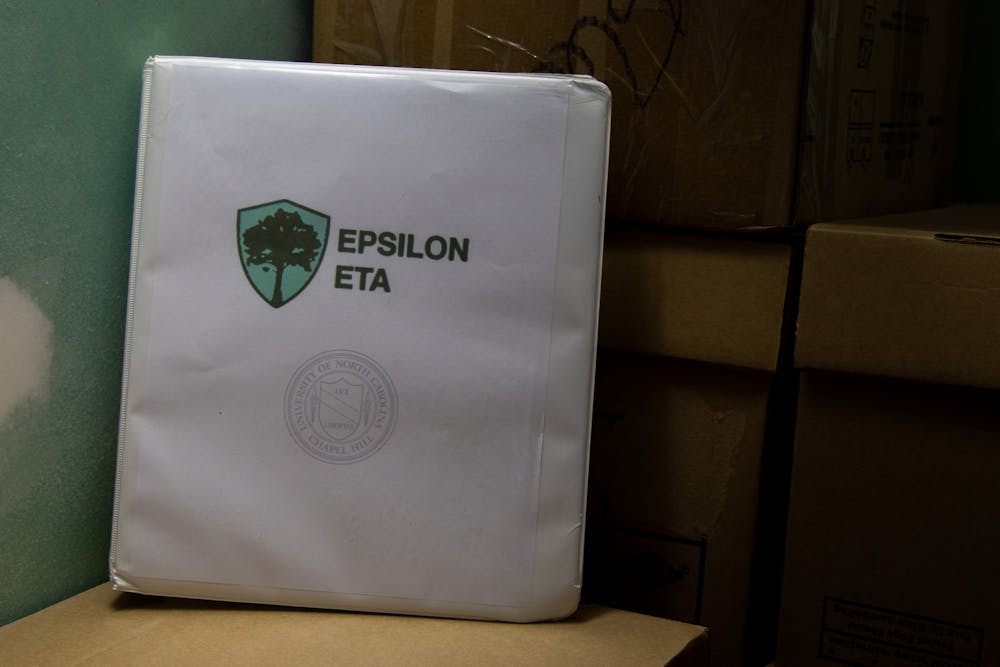In fall 2019, Byrd served on the executive board of Epsilon Eta. He and Thompson wanted to use that opportunity to begin a conversation amongst the group about the lack of diversity and inclusion in the space.
Byrd and Thompson said despite conversations, they faced a lack of action. But inspired by a resurgence in the Black Lives Matter movement, they were empowered to enact change themselves.
“That for me was when I realized, 'No, we really need to do something about this,'” Thompson said.
Thompson said the initiatives Epsilon Eta worked toward felt performative and hindered progress.
“So that is how we came to the conclusion that, 'No, this isn't a reformable space because the space wasn't founded on ideals that can be changed,” she said.
With their original letter, the three students hoped to raise awareness about the dangers of exclusivity among campus organizations.
Duncan said this year, about 97 people applied to Epsilon Eta and only 40 were admitted. Applicants had to have at least a 3.0 GPA, submit a resume and a write an essay regarding their relationship with the environment.
“So from there, it's just basically your stake in the climate crisis or your validity in the environmental movement is based solely off of how prestigious your internship last summer was,” Duncan said.
Byrd said he encourages other UNC organizations affiliated with Panhellenic Council and Interfraternity Council to think about the harm of exclusivity.
“I think that the jumping off point for other organizations is to really examine what exclusivity within their organizations is bringing them and what emulating IFC and Panhel is really bringing them,” Byrd said. “Because in this case, it wasn't getting us anything, and it was actually harmful to BIPOC members of our community.”
UNC's Panhellenic Council and Intrafraternity Council did not respond to a request for comment.
The letter and abolition of the group has sparked a conversation among UNC students and within Ep Eta’s own former membership group.
To get the day's news and headlines in your inbox each morning, sign up for our email newsletters.
Former Epsilon Eta President Katelyn Cline said in an email that its abolition addresses the harmful nature of Greek life.
“Reform within the Greek structure would have been insufficient because it does not acknowledge the root of the problem,” she said in the email. “I am hopeful that because Ep Eta has been abolished, some kind of inclusive club or group can take Ep Eta’s place.”
While some commenters on Epsilon Eta's post argued that the fraternity could have been reformed to become more inclusive of Black, Indigenous and people of color, the activists stand by the movement to abolish.
“It needs to be the act of abolishing it that shows that we don't support those values,” Byrd said. "It's more than just saying, ‘Oh, we're getting rid of the organization. We no longer have a community.’ It's us actively fighting for something that's greater than what we had created before what existed before.”
Thompson said Epsilon Eta's abolition represents the importance of dismantling harmful organizations from within.
“Like, I'm not going to sit here and say that I didn't have a fun time at induction,” Thompson said. “But I think about how there weren't any other Black people in that room, and how that made me feel, and how that has continued to make me feel, and how members before me have felt and how potential future members would have felt.”
Natalie Gauger, former Epsilon Eta diversity and inclusion chair, said she also believes abolition was the right choice for the fraternity.
“I do think it was the right decision because I would rather stand with BIPOC students and them coming forward and sharing their experiences about how this organization has hurt them than contribute to this organization's longevity as a white supremacy institution,” Gauger said.
Now Thompson, Duncan and Byrd hope to spark a conversation among students and other campus organizations to evoke further change.
“It has made me realize that you can't just wait for it to get better, you have to make it better,” Thompson said. "Even if you don't know what better is going to look like afterwards, you have the full validity to recognize that what it is right now is bad and that you don't want it anymore.”
university@dailytarheel.com




